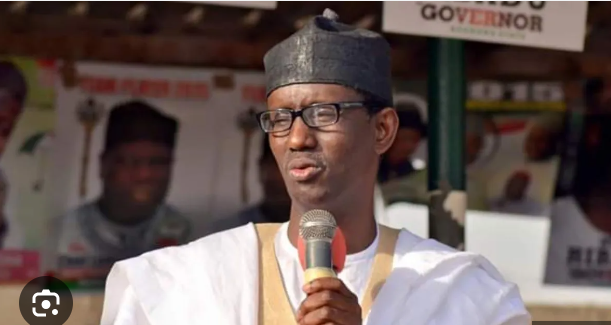
…As Tinubu Commissions 2,000 Tractors in Agricultural Push
ABUJA — Nigeria’s top security chiefs have declared hunger and poverty as key drivers of insecurity, crime, and national instability, warning that the socio-economic crisis has become a serious threat to peace and development.
The National Security Adviser (NSA), Mallam Nuhu Ribadu, and the Chief of Defence Staff (CDS), General Christopher Musa, raised the alarm yesterday at the 14th National Security Seminar organised by the Alumni Association of the National Defence College (AANDEC) in Abuja. Their statements came as President Bola Tinubu flagged off the deployment of 2,000 tractors nationwide, under the Renewed Hope Agricultural Mechanisation Programme, aimed at boosting food production and tackling food insecurity.
Ribadu, represented by Major General PP Mala, Director of Defence Affairs, stressed that poverty and hunger are no longer just humanitarian concerns but key factors fueling insecurity, violence, and social disintegration.
“Hunger and poverty are not merely social concerns; they are catalysts for insecurity, crime, and national instability. They create a vicious cycle — poverty leads to insecurity, and insecurity deepens poverty,” he said.
He highlighted ongoing efforts by President Tinubu’s administration to address the crisis through agricultural reforms, social investment programmes, and enhanced security interventions.
“These efforts are visible through increased support for food security initiatives, improved law enforcement capacity, and infrastructure to support agricultural production and distribution,” Ribadu said, noting that more coordinated and long-term strategies were needed to break the cycle.
On his part, the CDS, Gen. Musa — represented by Chief of Defence Training, Rear Admiral Ibrahim Shetimma — said insecurity in Nigeria can no longer be defined by arms alone but also by economic deprivation and food insecurity.
“Hunger and poverty are now national security threats,” Musa said. “The destruction of farming communities, especially in the North-Central region, and displacement caused by banditry and farmer-herder clashes, have crippled food production and caused food inflation.”
He called for urgent investment in grassroots agriculture, access to credit, and efforts to make farming appealing again — not as a last resort, but as a patriotic and noble profession.
The Defence Minister, Alhaji Mohammad Badaru Abubakar, emphasized the need for a human-centred security approach, urging government institutions to address unemployment, poverty, and social exclusion as root causes of instability.
“Military action alone cannot solve the complexities of today’s security challenges,” he stated. “We must adopt a broader, coordinated approach that includes social and economic interventions.”
He reiterated that President Tinubu’s focus on agricultural transformation, vocational training, and the delivery of essential services aligned with a modern understanding of national security — one that includes economic and psychological well-being.
In his remarks, AANDEC President, retired Air Commodore Darlington Abdullahi, warned that neglecting the socio-economic needs of citizens creates fertile ground for extremism and instability.
“Millions of Nigerians vulnerable to hunger and poverty can be easily exploited by bad actors,” Abdullahi said. “We must invest in our people — especially through education, livelihoods, and skills development — if we want lasting peace.”
He proposed the establishment of a dedicated vocational and leadership centre for widows and children of fallen soldiers, as a means to empower vulnerable populations and promote national healing.
The seminar, themed “Combating Hunger and Poverty for Sustainable Peace and Development in Nigeria,” brought together security experts, government officials, and policymakers in a bid to chart a new course for addressing Nigeria’s security and development challenges.
Comments